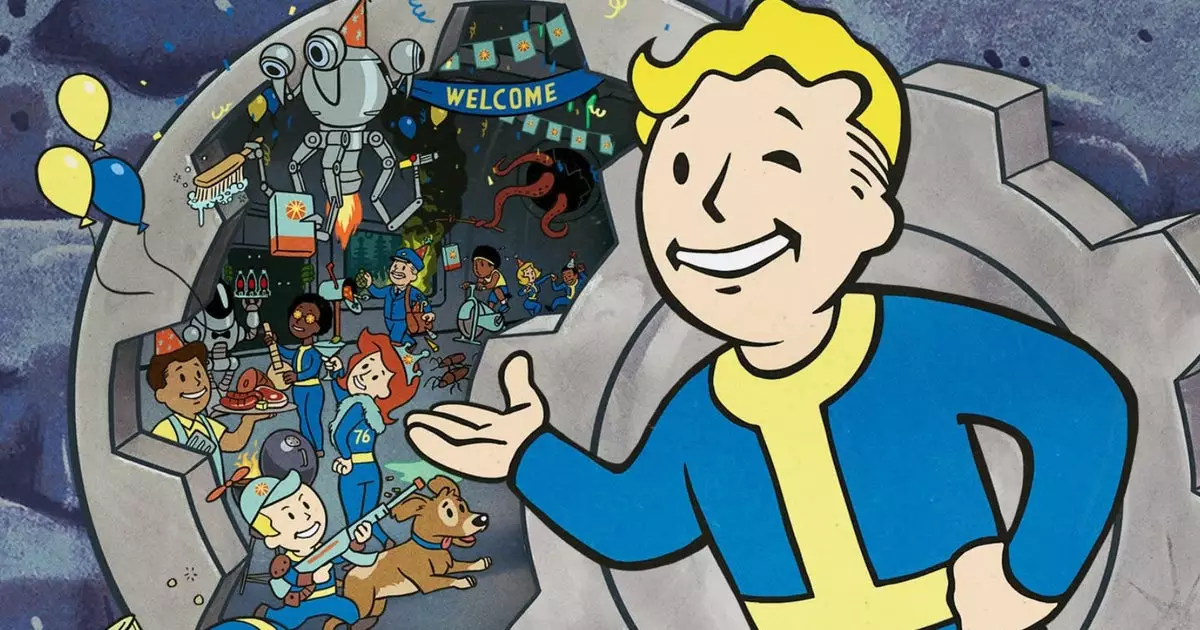Recently, a significant development has emerged from the vibrant yet tumultuous world of video game development, highlighting the expanding movement for worker rights within the industry. Approximately 300 employees at ZeniMax Media, the parent company of iconic franchises like Elder Scrolls, Doom, and Fallout, have banded together to form a union under the name ZeniMax Workers United. This bold initiative marks a crucial turning point—workers are now ready to initiate a strike if their demands for better wages and improved working conditions are not taken seriously by Microsoft, the tech giant that acquired ZeniMax.
The union, established in December 2023 and part of the Communication Workers of America (CWA), illustrates a growing consciousness among gaming workers regarding labor rights. The decision to vote for strike action, garnering over 94% support, is a clear indication of the frustrations simmering beneath the surface. Workers are not only rallying for financial compensation that aligns with the reality of living costs but are also pushing back against practices such as outsourcing game testing and the lack of flexibility in workplace policies, particularly concerning remote work.
Negotiation Challenges and Worker Dissent
For nearly two years, the employees of ZeniMax and representatives from Microsoft have engaged in negotiations regarding various issues, yet tangible progress remains elusive. The union has openly stated their readiness to down tools if their demands are met with indifference. This situation has unfolded against a backdrop of prior negotiations where Microsoft appeared to show some goodwill by signing a “neutrality” agreement with the CWA, ostensibly to facilitate workers’ choices regarding union representation during their acquisition of Activision-Blizzard. However, analysts argue that this gesture has not translated into genuine support for worker concerns.
Commentaries from union leaders illustrate deep discontent with Microsoft’s approach at the bargaining table. Senior QA tester Zachary Armstrong elucidates how employees are experiencing financial strain exacerbated by inadequate wages. He states that the company’s insistence on costly return-to-office (RTO) policies without fair compensation has forced them into making life choices, including delaying family planning, due to financial instability. This state of affairs is indicative of broader systemic issues where even significant corporations fail to align wages with the realities of modern living.
The Struggle for Dignity and Stability in a Changing Industry
Employees like associate QA tester Aubrey Litchfield have pointedly remarked that securing a living wage should be a foundational aspect of employment, especially within such a financially lucrative corporation. Working without basic benefits, such as paid sick leave, starkly illustrates the inequalities in the gaming industry. The feelings of uncertainty permeate many workers’ lives, making them question their job security in a landscape increasingly affected by generative artificial intelligence (AI) tools and corporate layoffs.
The union activity within Microsoft-owned entities reflects a larger awakening among game developers. For instance, workers from Bethesda Game Studios and ZeniMax Online Studios have taken steps to unionize, demonstrating a collective urgency to advocate for stability and fairness. The incorporation of generative AI, while promising innovation and efficiency, raises numerous alarms among employees who fear that such technologies may jeopardize their roles or devalue their contributions.
A Call to Action and the Future of Gaming Labor
As the ZeniMax workers stand united to voice their grievances, their actions signify more than just a localized situation—this movement echoes a wider trend seen across labor forces in various industries. Justice in the workplace, especially within the realms of technology and creative production, is an urgent issue that resonates with a growing number of workers nationwide.
The solidarity among these employees serves as a powerful reminder that the era of exploitation, where corporations prioritize profit over people, is increasingly under siege. Striking for better wages and working conditions is not merely a plea for financial relief; it is a call for dignity, respect, and recognition of the value inherent in their labor. As this situation develops, it will be critical to observe whether Microsoft responds appropriately or if the resolve of the workers forces the issue into the broader public consciousness, ultimately reshaping labor relations in the gaming industry. The words of union members capture a sentiment that echoes across boundaries—enough is enough.

